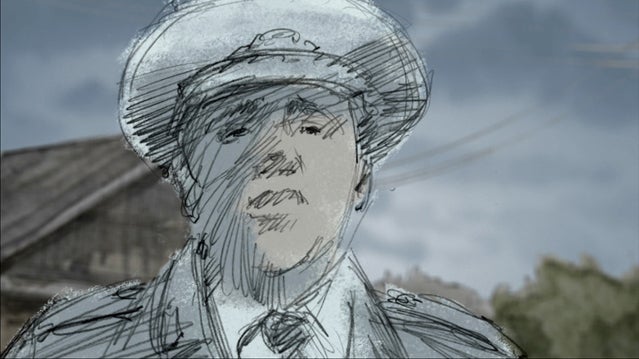It’s hard to imagine a time or place when nuclear meltdown did not stir up mortal fear in affected populations. Leonid’s Story, a short animated documentary playing at the Tribeca Film Festival, revisits one such circumstance at Chernobyl.
The film begins on a hopeful note, as the titular Leonid and his wife, Lyudmila, move to Prypiat, Ukraine, in the mid-1980s. Soon after, Lyudmila becomes pregnant. “In this spring of 1986, it seemed as if all of our dreams had finally come true,” she recounts.
The tragic irony is, of course, that the town of their dreams lay just a couple of miles from the Chernobyl nuclear power plant. On April 26, 1986, they woke to the sounds of moving vehicles in the streets. Yet when Lyudmila learns that the plant has blown up, she goes about her business. “Leonid was at work and there were no telephones, no cell phones. We knew nothing,” she explains. “At that moment we just had no way to understand it. The world had never seen a catastrophe like that.”
As a convoy of evacuees drives through town, Lyudmila and her neighbors wave to friends on the buses. “Standing in the radioactive dust, we couldn’t recognize anyone in the buses,” she recalls. “We were still not aware of the danger we were in.” Finally they are evacuated for what is supposed to be three days, but they never return—no one did, as we all know from the famous ghost-town photos. After a month of vomiting, Leonid (who, as a police officer, was on the frontlines) underwent a battery of shots, pills and surgery, but was never healthy again.
Lyudmila’s pregnancy looms throughout the 20-minute film, and director Rainer Ludwigs reveals the fate of her unborn baby in the final act, which transitions artfully from animation to real-life footage. It’s an affecting segue, allowing reality to sink in without hitting you over the head. Leonid’s Story steers clear of politics but serves as a reminder of how devastating mishaps and missteps can be when dealing with nuclear energy.


